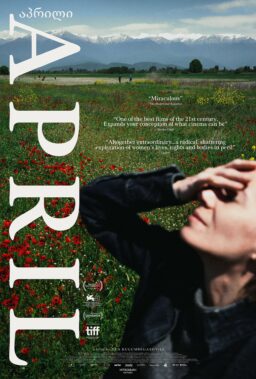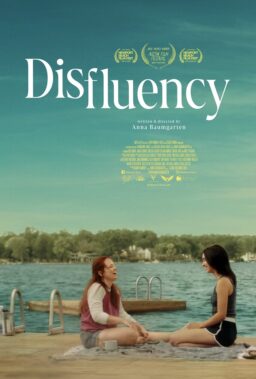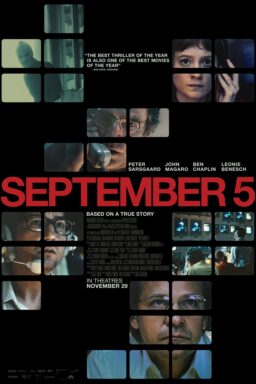PARK CITY, Utah – Closing pages from a festival diary:
If many of the best films at Sundance find it hard to attract a teenage audience, “Alpha Dog,” the festival’s big closing film, may explain why. Nick Cassavetes’ harrowing true-life drama, based on a notorious Los Angeles kidnapping, portrays affluent kids and their parents who live in a wasteland of ignorance, moral bankruptcy and general cluelessness. It is impossible to imagine any character in this movie attending a movie, reading a book or having a thought not focused on self-gratification.
Half an hour into the film, two audience members walked out loudly, as the film wallowed in a lifestyle of drug abuse, alcoholism, careless sex and nonstop f-wordery. Good thing they didn’t stay to watch scenes of cruelty and violence, and a murder as stupid as it is heartless. One reaction might be to recoil from the film. My reaction was to admire Cassavetes and his cast for so mercilessly portraying a worthless segment of society.
The cast is a roll-call of A and B-plus younger actors, including Emile Hirsch, Justin Timberlake, Anton Yelchin, Shawn Hatosy, Lukas Haas and Dominique Swain. Ben Foster is especially scary as a stoned speedfreak martial artist with eyes that seem to spin in his head. The film’s message appears to be: These people and their world are the spawn of hell.
* * *
But at Sundance you switch gears quickly. On the last day or two you hurry between screenings, trying to catch films everybody tells you not to miss. One I especially admired was “Crossing Arizona,” the story of how changes in the U.S. border patrol strategy has funneled illegal immigration toward the Sonoma Desert. More than 1,000 Mexicans have died of thirst in recent years, and we meet Native Americans who distribute bottles of water along immigration pathways. They also advise the immigrants to turn themselves in to the Border Patrol to save their lives.
The movie observes that illegal immigrant farm workers are crucial to the Arizona economy, and an American farmer says that without them the state’s agriculture would fail. We meet right-wing “Minute Men” who appoint themselves as unofficial border guards, fanned on by TV commentators like Bill O’Reilly, who says the North Koreans line their border with Red Army troops, and says he agrees with that approach. Meanwhile, Border Patrol agents consider the Minute Men dangerous bozos, and an Indian pastor finds that someone has slashed open the plastic bottles of water he leaves in the desert.
* * *
The movie title “Madeinusa” is intended to be pronounced “Madanusa,” and it’s the name of the heroine of Claudia Llosa’s magical film from Peru. She’s a young girl who lives with her sister under the sway of a tyrannical father. In her village, it is believed that between 3 p.m. on Good Friday, when Christ died, and dawn in Easter, when he arose from the dead, it is impossible to commit a sin— because God is dead. The villagers take full advantage of this in alarming ceremonies involving their virgins. A traveler from Lima is marooned in the village over the weekend, falls in love with Madeinusa, and becomes s victim of local customs. The film is enriched with countless eerie details, including an old man who stations himself in the square, squints at the sun to tell the time, and flips over cardboard numbers to act as a living digital clock.
* * *
Has there ever been a gloomier-looking movie than “A Little Bit of Heaven?” Here is a gothic noir that is set in America but was filmed in Iceland, where director Baltasar Kormakur finds a landscape and a shambling farmhouse so cold, dark and forbidding it becomes like another character.
Forest Whitaker is lovably engaging as an insurance investigator who suspects that the crispy body in a burned-out car may not belong to a client with a $1 million insurance policy. Jeremy Renner plays a scary creep who specializes in fake accidents, and Julia Stiles is the woman horrified by his schemes, but trapped in them because of her love for her child. Whitaker gives his investigator an absent-minded insecurity that makes us like him, and fear for him.
* * *
“Wristcutters: A Love Story” is the kind of macabre fantasy that may find an audience just because its premise is so audacious. Patrick Fugit stars as a pleasant young man who commits suicide for reasons never explained. He awakens on the other side to discover that life goes on as before except everything is a little more run-down and depressing. He falls in love with Shannyn Sossamon, who believes she got a raw deal because she didn’t kill herself but died of an accidental overdose. She appeals to a guy who seems to be in charge, who is played by Tom Waits, which tells you something right there.
To view Sundance short subjects for free, go to www. festival.sundance.org/2006/watch












